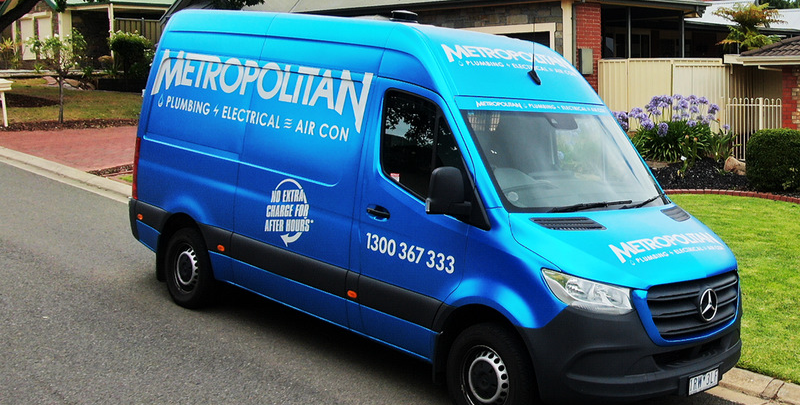
Aircon Regas Frequency: How Often Should It Be Done?
Aircon regas refers to replenishing or replacing the refrigerant in service of an air conditioning compressor or unit. Refrigerant is a vital component that facilitates the cooling process in the system.
Regular aircon maintenance is crucial for optimal air conditioner performance and energy efficiency. You don’t want a blast of hot air in the middle of a heat wave.
It helps extend the lifespan of the cold air in the unit, reduces the risk of breakdowns, and ensures a comfortable, cold indoor environment.
This kind of service is most commonly associated with your car air conditioning system, but sometimes a home air conditioner regas is necessary as well.
The primary aim of this blog is to explore the factors that influence the frequency of a home aircon regas. By considering various aspects such as climate, usage patterns, and professional recommendations, readers can determine how often they should consider an air conditioner regas.
The Aircon Regas Process
Before attempting an air conditioning regas, taking certain precautions is crucial to ensure the process is carried out safely and effectively.
First, the air conditioning system must be powered off and unplugged to avoid any electrical hazards during the procedure. Additionally, the technician must wear appropriate personal protective equipment to prevent contact with refrigerant and potential eye injuries.
- System inspection: A qualified HVAC technician will begin the air conditioner regas process by inspecting the air conditioning unit thoroughly. This involves checking for visible leaks, assessing the system’s overall condition, and examining the refrigerant levels.
- Refrigerant recovery: The technician will perform a refrigerant recovery process if the refrigerant leaks or the system’s refrigerant levels are critically low. This involves safely removing the remaining refrigerant from the system and storing it in a designated container for proper disposal or recycling.
- Vacuuming the system: Once the refrigerant has been recovered, the aircon technician will also clean the system to remove any air and moisture. Air and humidity can negatively impact the air con system ac compressor’s efficiency and cause further damage if not eliminated.
- Recharging refrigerant: With the air conditioning system vacuumed and free of contaminants, the technician will proceed to the new refrigerant and recharge or replace it with the appropriate refrigerant as specified by the manufacturer’s guidelines. It is crucial to use the correct amount, type and quantity of refrigerant to ensure optimal performance and prevent potential damage to the system.
- System integrity check: After the regas process is complete, the technician will conduct a vacuum test and a final inspection to ensure there are no leaks and the system is functioning correctly. They may also measure the system’s cooling output to verify that it has been restored to its optimal efficiency.
Factors Influencing Aircon Regas Frequency
Air conditioning systems are vital to maintaining a comfortable indoor environment, especially during the hot summer.
However, over time, air conditioners may lose their cooling efficiency, leading to the need for a process known as aircon regas.
Aircon regas, short for air conditioner regassing, involves replenishing the refrigerant gas within the system, which is essential for proper functioning. Several factors can influence the frequency at which aircon regas are required in houses.
1. System Age and Condition
The age and condition of the air conditioning system are crucial factors affecting how often an aircon regas is necessary. As the AC unit gets older, wear and tear can cause refrigerant leaks, resulting in a gradual decline in cooling performance. Regular maintenance and servicing can help prolong the system’s lifespan and minimise the frequency and cost of regassing.
2. Refrigerant Type
The type of refrigerant used in the air conditioning system can also impact regassing frequency. Older systems typically use refrigerants like R-22, which are being phased out due to their harmful environmental impact. Modern AC units use more eco-friendly refrigerants such as R-410A, which tend to be much more fuel efficient and have lower leakage rates, reducing the need for frequent regassing.
3. Installation Quality
The frequency of regassing heavily depends on the quality of the aircon installation. Improper installation, such as incorrect refrigerant charging or poorly sealed joints, can lead to refrigerant leaks. This can also decrease the air-con system’s overall efficiency. Proper installation and regular inspections can help prevent unnecessary regas service and loss of refrigerant.
4. Usage Patterns
Ambient temperature frequency and the duration of air conditioner usage can dictate the need for regassing. AC systems in regions with consistently high temperatures may run more frequently, which can deplete the refrigerant faster. Additionally, leaving the air conditioner running for extended periods without adequate breaks puts more strain on the system, potentially leading to refrigerant leaks.
5. Maintenance and Servicing
Regular maintenance and servicing by qualified HVAC professionals ensure the air conditioning system remains in optimal condition. During these maintenance visits, technicians can detect and fix small leaks before they become significant issues, reducing the need for frequent regassing.
6. Environmental Factors
The environmental conditions in which the air conditioning system operates can impact its regassing frequency. For instance, if the AC unit is located in an area with high dust, debris, or corrosive elements, it may be more prone to refrigerant leaks. Similarly, extreme weather conditions or exposure to direct sunlight can affect the system’s performance and refrigerant retention.
Determining the Optimal Aircon Regas Frequency
The frequency of air conditioning regassing, depends on several factors, including the condition of your air conditioning system, its age, usage patterns, and potential leaks. As a general guideline, it is recommended to have your aircon regassed:
- Every 1 to 3 years: The cost of having the air conditioning system checked and regassed every 1 to 3 years is a good starting point for most households. This frequency of service allows for routine maintenance and ensures that the refrigerant level remains adequate for optimal cooling efficiency.
- Based on manufacturer’s recommendations: Follow the air can manufacturer’s guidelines and recommendations for maintenance. They will guide you on how often to check and refill the refrigerant. Manufacturers design their aircon systems with specific maintenance intervals to maintain optimal performance.
- If you notice reduced cooling performance: If you experience a decline in the cooling performance of old refrigerant gas in your aircon, it might indicate a refrigerant gas leak issue. In such cases, it’s essential to have the system checked for any gas leaks and regassed, if necessary.
- When conducting repairs or maintenance: During routine maintenance or when repairing your air conditioning system, it’s a good idea to check the refrigerant level and top it up if needed.
- If there are signs of leaks: If you suspect or discover refrigerant leaks, repair them immediately and replace the old refrigerant system as needed. Regular inspections can help identify leaks early on, preventing further damage and excessive loss of refrigerant.
Remember that air con regassing frequency can vary from household to household based on usage habits, climate conditions, and the specific aircon unit.
Consulting with qualified aircon regas experts can provide personalised advice and help determine your situation’s optimal aircon regas frequency. Timely AC maintenance and regassing by an air conditioning specialist improves energy efficiency, reduce bills, and enhance comfort indoors.
Get Your Regas Frequency Right
We have covered various aspects of home aircon regas frequency, including understanding the process, factors influencing new air con gas as frequency, manufacturer recommendations, expert advice, and the Importance of personal assessments.
As part of comprehensive maintenance, regular aircon regas are vital for maintaining optimal performance, energy efficiency, and overall comfort of cool air throughout the winter. It prolongs the aircon’s lifespan while ensuring reliable warm air cooling during hot and cold seasons.
We encourage readers to assess their air conditioning recharge under specific circumstances like climate, usage patterns, and professional recommendations. It certainly doesn’t need to be as regular as your car’s air conditioning unit.
This will help them determine the ideal home air conditioner regas frequency to replace their air conditioning units. Taking proactive steps toward aircon maintenance contributes to long-term satisfaction and cost savings.
If you’re looking for an air conditioning company that has expertise in this field, contact the experts at Metropolitan Air Conditioning.
Please note: This information is provided for advice purposes only. Regulations differ from state to state, so please consult your local authorities or an industry professional before proceeding with any work. See our Terms & Conditions here.
Published: 2023-07-24



































